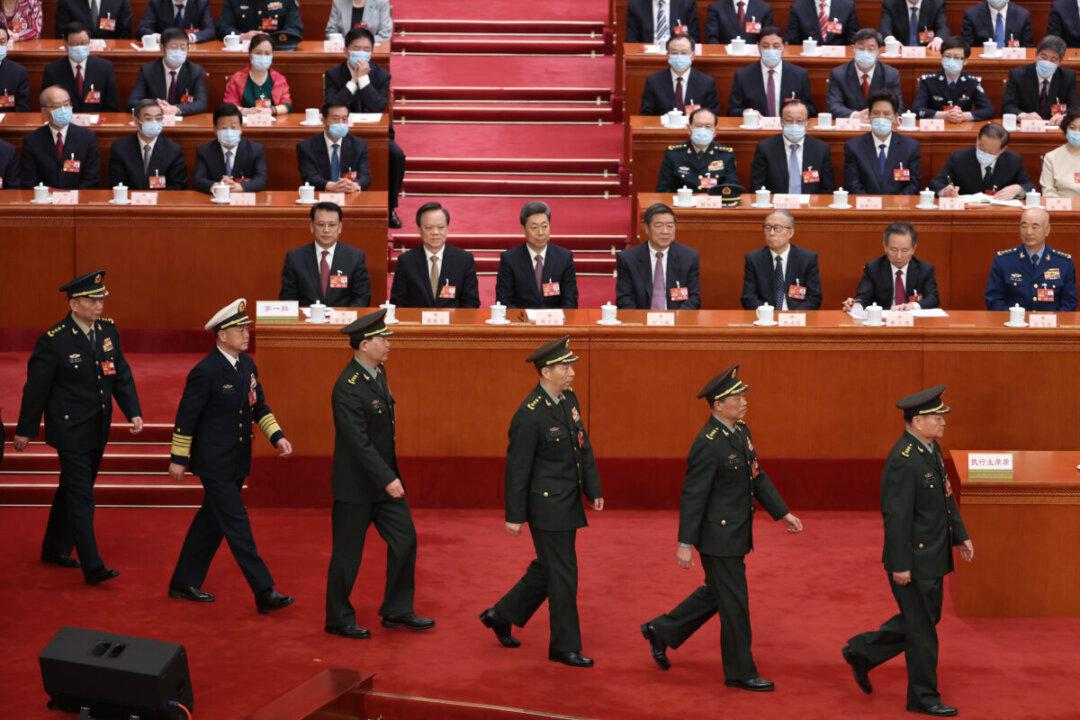The recent meeting between a vice chairman of China’s Central Military Commission (CMC) and newly promoted Chinese academicians is viewed by some China observers as indicative of a rift between Chinese leader Xi Jinping and a faction within the military.
The Chinese state media reported that on Jan. 10, Gen. He Weidong, vice chairman of the CMC, met with newly promoted academicians of the Chinese Academy of Sciences and the Chinese Academy of Engineering and congratulated them on behalf of Xi. Adm. Miao Hua, a member of the CMC and director of the Political Work Department of the CMC, also attended the meeting.






